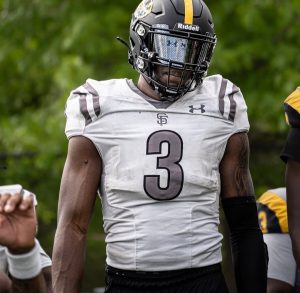
In a development that has baffled analysts, shocked fans, and sent ripple effects through the college football world, the Tennessee Volunteers find themselves ranked outside the top 10 in the Southeastern Conference (SEC) football standings this season. For a program with rich tradition, growing expectations, and recent momentum under head coach Josh Heupel, this unexpected slip in the standings has ignited questions about what went wrong—and what it means for the future of Tennessee football.
Over the last two years, Tennessee had undergone a renaissance. After enduring years of mediocrity and coaching instability, the Volunteers finally turned a corner under Josh Heupel. In 2022, the team shocked the college football world with a dominant campaign, highlighted by a historic win over Alabama and a brief stint at No. 1 in the College Football Playoff rankings.
That resurgence reinvigorated a fan base long starved of success. With a potent offense, a re-energized defense, and Heupel’s up-tempo system finally finding its rhythm, the Vols entered the 2023 and 2024 seasons with sky-high expectations.
This season, Tennessee was projected by many analysts to finish in the upper echelon of the SEC, even competing for a conference title. Some bold predictions even had them as a dark horse for the College Football Playoff. They had returning talent, a favorable home schedule, and arguably one of the most innovative offensive minds in the conference.
The hype wasn’t baseless. Recruits were coming in at a higher level than in years past, NIL deals were keeping top talent in Knoxville, and Heupel’s track record with quarterbacks gave hope that the Volunteers’ offensive firepower would remain elite—even with the departure of Hendon Hooker and Jalin Hyatt.
Yet as the season unfolded, the Volunteers failed to meet expectations. Losses began to pile up—some narrow, some ugly. And now, for the first time in years, Tennessee sits outside the top 10 in the SEC standings, below teams they were projected to outpace by a wide margin.
So, what happened?
At the heart of Tennessee’s recent success was the quarterback position. Hendon Hooker was a revelation in Heupel’s system, managing games with poise and hitting deep shots with surgical precision. After his departure, many expected Joe Milton to take over and maintain the offense’s momentum.
Milton had a cannon for an arm, but questions lingered about his decision-making and consistency. Unfortunately for Tennessee, those questions proved valid. Inconsistencies plagued his play early in the season, and by mid-year, the offense had sputtered. Even with a promising young quarterback like Nico Iamaleava waiting in the wings, the transition wasn’t seamless.
Without elite quarterback play, Heupel’s offensive system—so reliant on tempo, spacing, and explosive plays—lost its edge. Defenses caught up, especially SEC units armed with elite athletes and seasoned coordinators. Suddenly, what had been a top-5 scoring offense in 2022 became a middling unit struggling for rhythm.
Injuries are part of football, but timing and depth often determine how much a team can absorb. Tennessee was hit hard in both respects. Key contributors on both sides of the ball—especially along the offensive line and in the secondary—missed significant time. The lack of experience and depth became glaring, especially against top-tier SEC opponents.
The offensive line, in particular, was a problem. Without consistent pass protection or a push in the run game, Tennessee’s offense stalled. Defenses could rush four and drop seven, minimizing big-play opportunities and forcing long, unsustainable drives.
On defense, the Vols were already somewhat vulnerable in the secondary. Injuries only amplified those deficiencies. Missed assignments and poor tackling plagued the unit throughout the year, turning what should have been competitive games into shootouts—or worse, blowouts.
While much of the focus has been on the offense, the defense hasn’t helped Tennessee’s cause either. In recent years, the unit had shown signs of improvement under defensive coordinator Tim Banks. The front seven had developed into a formidable group, and while the secondary was young, it was athletic and aggressive.
But this season, regression was evident. Opponents found ways to exploit Tennessee’s aggressive style with misdirection, screens, and quick passes. The defense struggled to get off the field on third downs and often gave up back-breaking plays late in halves.
Moreover, the Vols lacked the kind of alpha pass rusher that could take over a game. Without consistent pressure, opposing quarterbacks had time to pick apart the secondary. Tennessee, once known for high-octane offense and opportunistic defense, became a team that couldn’t impose its will on either side of the ball.
Part of the Volunteers’ drop in the standings is due to internal issues, but part is also due to the sheer strength of the SEC this season. Several programs made significant strides—some unexpectedly.
Teams like Kentucky, Missouri, and even South Carolina outperformed preseason projections. Meanwhile, traditional powers like Alabama and Georgia remained dominant. LSU continued its climb under Brian Kelly. Ole Miss and Texas A&M both looked sharper and more consistent.
The result? Tennessee found itself caught in a logjam of mid-tier teams and on the wrong end of several critical tiebreakers. Losses to teams like Missouri and Kentucky, which once might have been considered manageable, became decisive blows to their standings.
While Josh Heupel has largely been lauded for his offensive creativity and ability to rebuild a once-struggling program, this season has exposed some cracks in the foundation. At key moments, questionable play-calling, clock management errors, and failure to adjust mid-game have haunted the Vols.
In several close games, Tennessee made critical mistakes in high-pressure situations. Whether it was failing to convert in the red zone, burning unnecessary timeouts, or mismanaging the clock late in halves, the coaching staff deserves a share of the blame.
Coaching in the SEC is a week-to-week chess match. This season, Tennessee has too often looked like they were reacting rather than dictating terms—a troubling sign for a program that built its reputation on innovation and aggression.
For the passionate Tennessee fan base, this season has been a bitter pill to swallow. Neyland Stadium still sells out, the Vol Navy still cruises into Knoxville every weekend, and the chants still echo. But beneath the pageantry, there’s a simmering frustration.
After tasting national relevance again in 2022, the idea of sliding back into mediocrity is almost unbearable. Many fans fear this season is not an anomaly but a sign that Tennessee is still a step behind the SEC’s elite.
Social media has been ablaze with criticism—some of it fair, some of it reactionary. Heupel, once seen as a savior, is now being scrutinized more critically. The honeymoon is over, and now the real pressure begins.
While this season has undoubtedly been disappointing, it doesn’t mean the sky is falling in Knoxville. Programs go through cycles, especially in a conference as brutal as the SEC. But this year’s results do present a clear warning: progress in college football is fragile, and success is never guaranteed.
Here are a few things Tennessee must address moving forward:
1. Stabilize the Quarterback Position
Nico Iamaleava represents the future of the program. Highly touted, immensely talented, and already gaining experience, he must become the steady presence Tennessee builds around. Getting him consistent reps, solid coaching, and confidence will be key to the program’s resurgence.
2. Recruit and Develop Depth
The SEC grind exposes roster weaknesses quickly. Tennessee needs to continue building depth, especially in the trenches and secondary. That means winning battles on the recruiting trail, but also developing talent once it’s on campus.
3. Adapt the Scheme
Heupel’s offense works best when it’s unpredictable and fast. But without elite talent or execution, it can become repetitive and ineffective. He must evolve—not overhaul, but tweak—the system to account for SEC defenses that are now familiar with his style.
4. Build a Championship-Caliber Defense
For Tennessee to truly compete with the likes of Georgia, Alabama, and LSU, they must field a top-tier defense. That doesn’t mean reverting to old-school grind-it-out football, but it does mean fielding a unit that can get stops in big moments and take over games.
5. Win the Key Games
SEC standings often come down to a few swing games—vs. Kentucky, Missouri, South Carolina, or Florida. Tennessee can’t afford to drop these games if they want to contend. Every loss compounds, especially with how deep the conference is.
Being ranked outside the top 10 in the SEC is undeniably a letdown for a Tennessee team that believed it was on the cusp of greatness. But it’s also an opportunity. Seasons like this reveal character—of players, coaches, and programs.
The question isn’t whether Tennessee has fallen. It’s whether they can get back up stronger.
Josh Heupel has built a foundation. Now comes the hard part: refining it, strengthening it, and proving that the 2022 season wasn’t a one-hit wonder. The SEC won’t wait, and neither will the fans. But with the right adjustments, the Volunteers still have the tools—and the talent—to reclaim their place among the conference’s elite.
For now, though, Tennessee’s fall in the SEC standings stands as one of the most surprising—and telling—storylines in college football this season.





